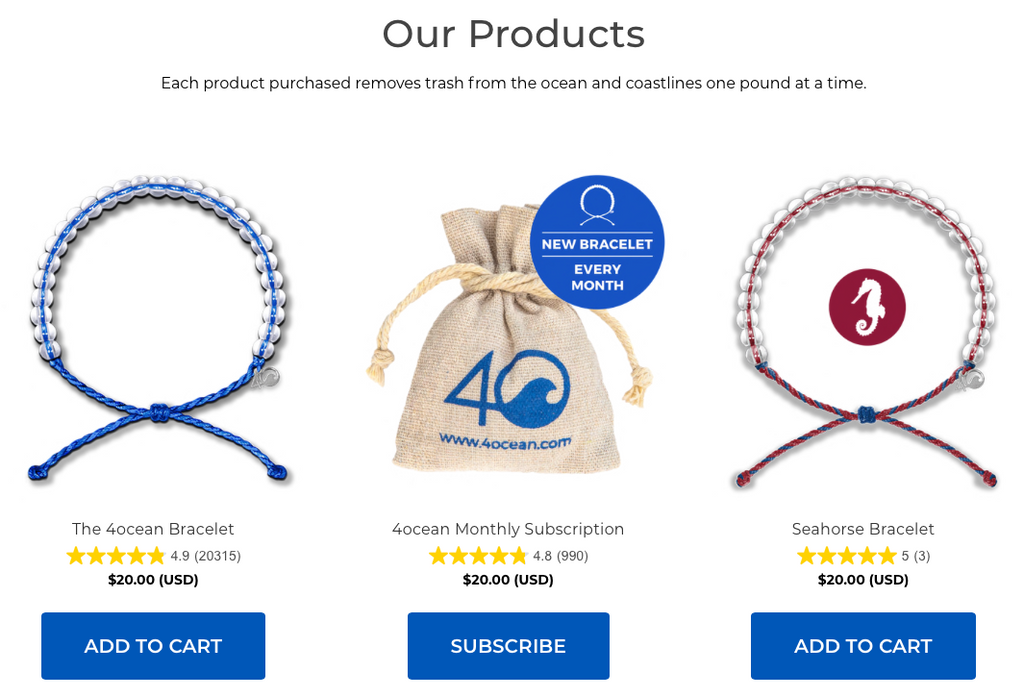Every once in a while, we like to take a look around the globe to see what's been going on in the news when it comes to ocean plastic pollution. It's a great way for us to see what's trending and keep our customers informed about some of the big stories making headlines. Whether the news is good or bad, we like to put it all out there so everyone can be more informed about the choices they make and how it affects the ocean, sometimes halfway around the world.
The EU Passes a Law to Ban Single-use Plastic by 2021
On March 27, 2019, the EU Parliament approved a law by an overwhelming vote of 560 "Yes" to 35 "No" (28 abstains) that bans a whole host of commonly used single-use plastic items including things like straws, plates, food containers, and expanded polystyrene cups. Not only that, this law shifts to a stricter "polluter pays" model which takes the problems of consumer-focused recycling and applies them back to the producer. For example, cigarette butts are one of the most common forms of plastic pollution and it will now be the tobacco companies that will be required to cover the costs of recycling or cleanup, not consumers. Check out this great video from Reuters that explains it in more detail.
Pregnant Whale Found Dead With Almost Fifty Pounds of Plastic in Her Stomach
In what is becoming an all too familiar occurrence these days, a pregnant female sperm whale washed ashore after it had perished somewhere off the Italian coast near Sardinia. With almost 50 pounds of plastic found in her stomach, it is just another tale like the ones being told in Indonesia, the Philippines, and Spain. What we cannot do is allow the frequency of these deaths make us numb to the fact that they continue to happen regularly. Each and every one of us can make a difference by choosing more sustainable ways to live our lives without plastic. This video from Bloomberg breaks it down further. Warning: it's not pretty.
Shells from Lobster Dinner Could Help Replace Plastic — Tasty, Right?
At a time when almost any viable option must be explored as a means to replace the massive amount of plastic we're producing, leftovers from the dinner table might just become part of the solution. So, draw the butter and grab the lemon, lobster is served. If it's up to chemists from McGill University, the millions of tons of shell waste created globally every year from the consumption of lobsters and other crustaceans can provide the raw material to create a form of bioplastic that is non-toxic and biodegradable. This substance, called chitin, is used to create a long-chain polymer that can be formed into all kinds of plastic packaging, bags, and disposable cutlery. They even made it into a golf ball, but that just didn't go the distance. Here is a video that shows how it happens.
Could Chemical Recycling Be the Answer?
It may not be common knowledge, but there are some significant issues with traditional mechanical recycling systems. The good news is that there are companies researching another method of recycling that may solve some of those problems. Chemical recycling shows promise as a more efficient method that may give some previously unrecyclable plastics a new life. In this process, plastic is broken down to the molecular level, meaning that much more of the plastic that comes to these facilities can be recycled and used over and over and over again. CBS This Morning takes a deep dive in this video here.
The Galapagos: Islands of Fire (and Plastic)
Off the coast of Ecuador lies one of the most famous island chains in the world, the Galapagos Islands, the birthplace of the Theory of Evolution, where Charles Darwin sat on the coastlines marveling at the many puzzling and unique species found only on these islands. Now, those same beaches where he postulated his famous ideas about the natural world are covered in something very unnatural: plastic. Even on these remote islands, there is no getting away from this "invasive species." But there are researchers on the islands today using cutting-edge drone technology to try and map this plastic. Once we know what types of plastic are washing up, we can develop solutions that solve the problem at the beginning of the supply chain. Here is an eye-opening video from The Guardian that looks at the problems and the solutions these researchers are coming up with to combat the problem.
Now that we have taken our virtual trip around the world to see some of the ways ocean plastic pollution is proliferating and what is being done to curb the problem, we have to look inside ourselves and choose to take action that will collectively make changes happen on a global scale. There are solutions out there and that is what we have to focus on if we are going to save us from ourselves.
To get in on the conversation about ocean plastic pollution leave a comment below and head on over to our Discover 4ocean Facebook Group. Also, make sure to follow us on Facebook, Instagram, and Twitter to stay up to date on all things 4ocean!







